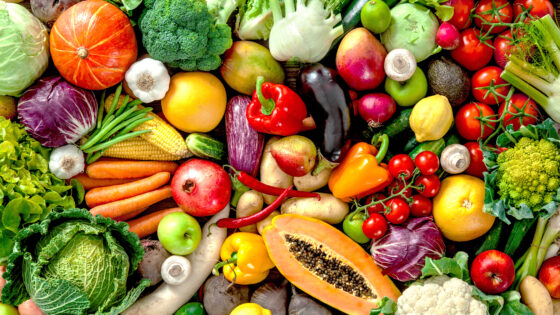Blog 6: Brexit – Border Operating with grace and BBQs at cost
29 April 2021
Dear Albert,
I have to apologise for my late reply to your letter dated 4th April 2021. It has been such a crazy month; I don’t know where to start! On the bright side, I managed to celebrate a milestone Birthday! Although, it was rather subdued by Covid and limited to my immediate family, numerous Zoom calls – and dare I complain, a few urgent work deadlines. It has been a busy month.
With everything going on, Brexit is continuing to make considerable headlines – some of them truly awful. There were protests and riots in Northern Ireland that continued nightly until the death of Prince Philip on 9th April. There also appears to be growing public awareness about the regulatory requirements that apply to export markets, including those for Northern Ireland. Cheese (nothing to smile about) is one extreme example for those tired of reading about fish. Cheese has high tariffs and like all Products of Animal Origin is normally subject to strict Export Health Certification requirements.
Of note is that since my last letter to you (9th March) the UK revised the timelines for its Border Operating Model. Pre-notification requirements for Products of Animal Origin, for example, will now not be required until 1st October 2021. For low-risk plant and plant products, they only come into play on 1st January 2022. Physical SPS checks for products of animal origin, including Export Health Certificate requirements, are to be introduced for imports from the EU on 1st October – not 1st April 2021 as I previously advised. High risk plants are only subject to physical checks from 1st January 2022 onwards. Low risk plant and plant products and live animals will only be subject to in-person checks at UK Border Control Posts in March 2022. The UK’s deferred customs declaration scheme has also been extended to 1st January 2022. Further details can be found in Michael Gove’s Statement for the UK Cabinet Office.
As mentioned last time, the UK also deferred its grace period on checks for agri-food products from Great Britain to Northern Ireland by 6 months and will now apply in October. Given the delay, the European Commission has since responded with a formal notice to the UK for breaching the good faith obligations under the Withdrawal Agreement. Fortunately, despite all this, the European Parliament formally approved the EU-UK trade and cooperation agreement yesterday afternoon. But rapporteurs from the Committee on Foreign Affairs and the Committee on International Trade have stressed – next to the need for building bridges – that vigilance is advised and that both sides must stick to their commitments.
I suspect we can expect considerable public debate in the weeks / months to come, especially about: the asymmetric arrangements between the EU (which controls its borders) and the UK (which is not yet ready); the specific need for controls and what it is that the UK wishes to control; and the extent to which UK regulations and standards might differ from the EU. And, there is much anticipation about the latter point within the context of UK-Australia trade negotiations that are expected to conclude in June. The anticipated deal would be the first UK trade deal that is not a “roll-over deal” replicating the trade agreements that were initially negotiated by the European Union.
Interestingly, in your letter from the 4th, you highlighted a number of challenges faced by Dutch exporters to the UK. You mentioned significant business disruptions, increased cycle-times, the initial need for inventory stock, use of new transport routes, order fluctuations, and the relocation of UK businesses to the Netherlands. In a sense, what we are witnessing is a supply chain reconfiguration cost that is the result of dramatic changes to border arrangements (first there were none, now the UK is a third country). It is manifesting itself with the need for businesses to relocate distribution centres, seek scale to help offset border related costs, and find new routes.
In response, one could say, that not that long ago the operational paradigm was to seek leanness and shave costs – especially inventory costs – as much as possible. The disruptions brought along by Brexit are forcing businesses to adopt more resilient business models where leanness may no longer be the primary operational goal. Amplifying the need for resilience is of course also the ongoing Covid-19 crisis. The recent blockage in the Suez Canal showed us how even a seemingly minor shipping accident (where no one was hurt) can have major consequences. Our focus and interest might be biased toward assessing the impacts of borders. However, what we are witnessing is the reconfiguration (bounce-back) of supply chain networks in response to major impacts on the business environment. The new border between the EU and the UK being one significant example, Covid-19 is another, and the blockage of the Suez Canal yet one more example.
I would also like to offer another, more personal observation. In the UK, certain goods appear to be difficult to obtain or have become very expensive. A number of friends in need of new washing machines or gas BBQs have found that the models they wish to buy are sold out. Prices also appear to be significantly higher than last month. When considering the considerable supply constraints and increased transport costs along with shifting demand patterns (people stuck at home with money to spend) there also appears to be a buoyant second hand market for items like children’s bicycles (parents unable to wait for retailers to restock), BBQ gas cylinders, DIY supplies, plasterboard, camping equipment and caravans. This appears to be a good time for clearing out the garage or attic!
I look forward to your next letter!
With best wishes,
Andrew
Geef de eerste reactie




